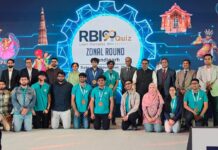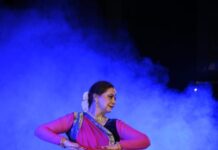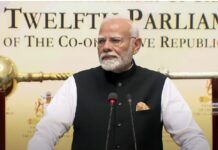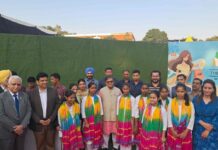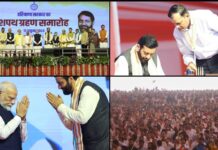Chandigarh January 25, 2022
A Panel Discussion on Girl Child in the 72nd Year of the Republic: The Dream and the Reality was organized by the Department –cum-Centre for Women’s Studies, Panjab University to celebrate National Girl Child Day 2022 as well as Azadi ka Amrit Mahotsav and Republic Day 2022. Welcoming the speakers, Prof.Manvinder Kaur, Chairperson of the Department recollected the words of Pt. Jawaharlal Nehru on the eve of Independence, “When the world sleeps, India shall awaken to freedom” and questioned whether that freedom had become a reality for the girl child in India. In this 72nd year of the Republic the girl child continues to be regarded as a liability and yet there is hope. The myth of weakness of the girl lies shattered for her entry into the armed forces reveals that she is capable of not only looking after herself but also protecting the borders of the nation.
Prof Bulbul Dhar James, of Jamia Millia Islamia highlighted the Constitutional provisions dealing with the girl child. She emphasized that legally women and girls have all the rights, and the laws are there as bargaining chips. However patriarchy functions as a stumbling block. Men continue to control the social groups as well as form of social organization in which a man heads and controls the family. Patriarchal controls over women includes control over her body, mobility, property, health, education, employment. At the same time, she asserted that masculinity is imposing a burden on the boys of being the breadwinner, not being emotional, and this has become more difficult during the pandemic times. Role modeling of strong independent tough kind of boy leads to toxic masculinity which harms the boy as much as society. This is further leading to violence against women and normalizing the violence. Peer pressure prevents the boys from changing. Celebrating the national girl child day also entails changing the boys. They also need the freedom to be able to do any work and not be clueless in the household.
Women, she said, are half of India’s demographic dividend and given the right incentives can become powerhouses for India’s development. She concluded by asserting that we need to deconstruct systems, stereotypes and structures and reconstruct equality.
Prof Jyoti Grewal, former Dean and Professor Emerita of America University RAK, UAE in her presentation stated that our reality has kept changing over the last 70 years. Our culture needs to be informed by the Constitution,. She started her presentation with the fear of abandonment faced by her mother who was told by her parents that they were going to kill her upon her birth as she was an unwanted third girl child. She survived. But had to deal with a constant feeling of abandonment. Before the creation of the Republic of India the girl child was dispensible. It is equally true today. She emphasized that we think it is happening in the villages, but if you look at the Census it is the urban areas where the girl children are being killed selectively either pre or post natal. It is not the illiterate who are doing this, but the urban areas where there is a high level of murders of the foetus. She challenged the assertion that the Republic ever had a dream for the future of the girl child. She emphasized upon the need to change the language for language is very powerful. It can negate you and erase you. She cited the example of the oft quoted ‘Beti toh paraya dhan’. A daughter is not anyone’s property. She also asserted that creating awareness is not enough for even being aware does not let you speak up because there is a culture of shame and victim blaming. Culture of shame silences you. It refutes your agency.She concluding by asserting that we need to articulate a dream for the girl child and value human beings as human beings.
Summing up the discussion, Prof Pam Rajput, Professor Emeritus, stated that we had a dream at the time of forming of the Republic. The Constitution envisioned something, but we have to look at how that vision has to take shape. The entire responsibility should not lie only on women. It has to be a collective effort. What does the girl child want? The answer she said was given by a small girl of sector 25, “ I only want a place to play.” If a girl can’t laugh, can’t play, can’t study what are we doing by celebrating the national day of the girl child, she questioned.
The session concluded with intense discussion among the participants. The Panel discussion was attended by senators, faculty, research scholars, students of Panjab University as well as lawyers of the High Court, Chairperson and members of Child Rights Commission of Chandigarh among others.


